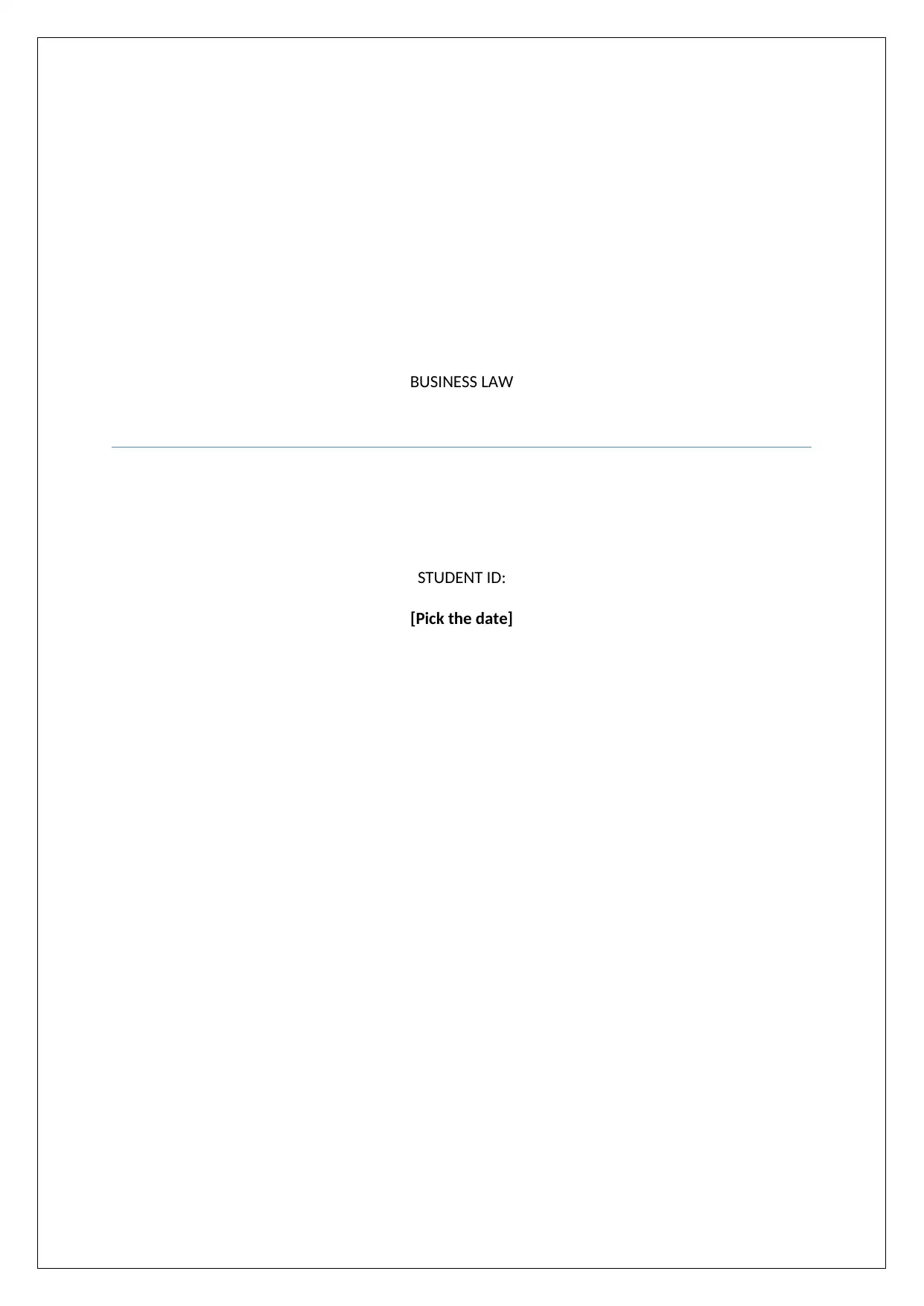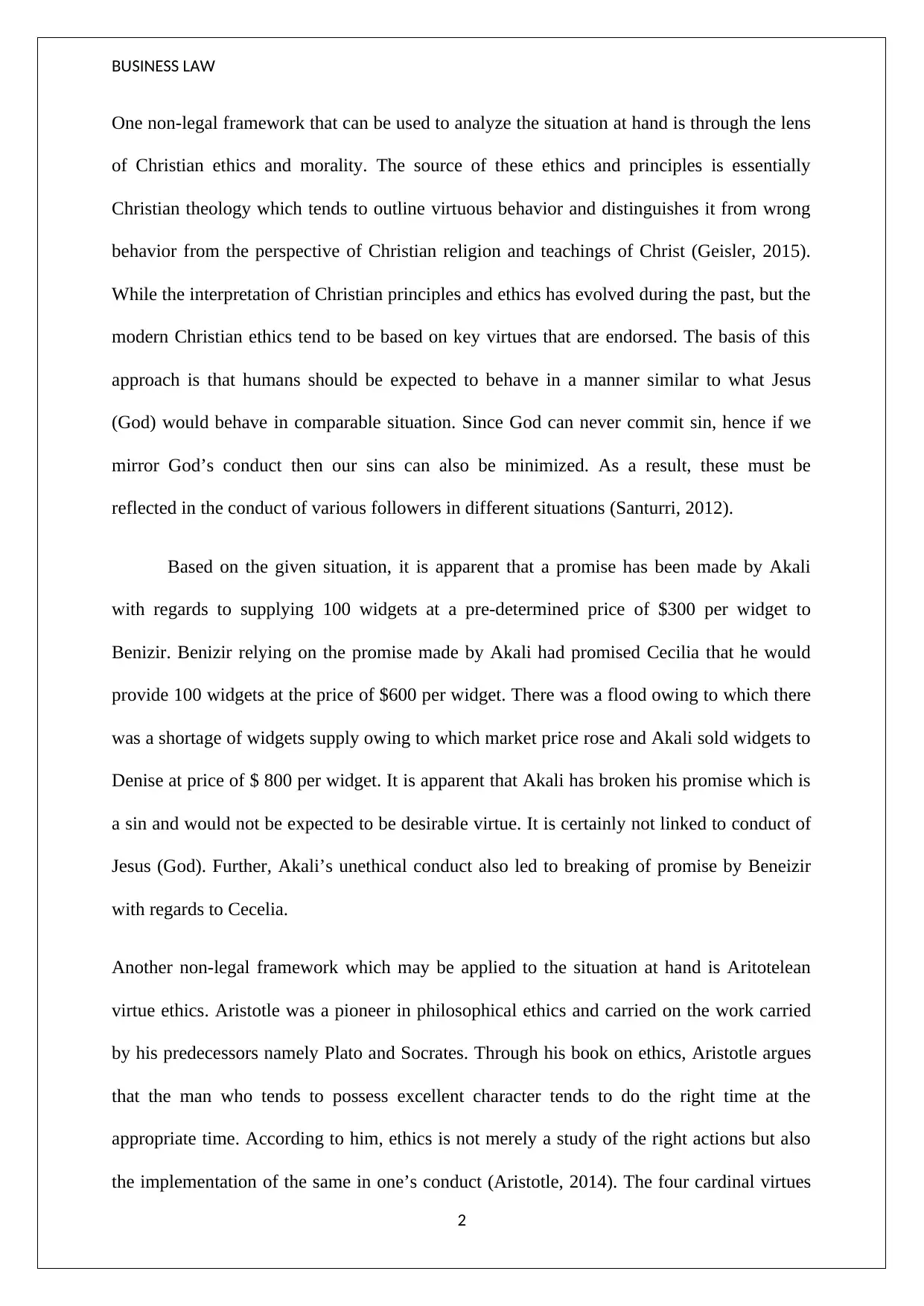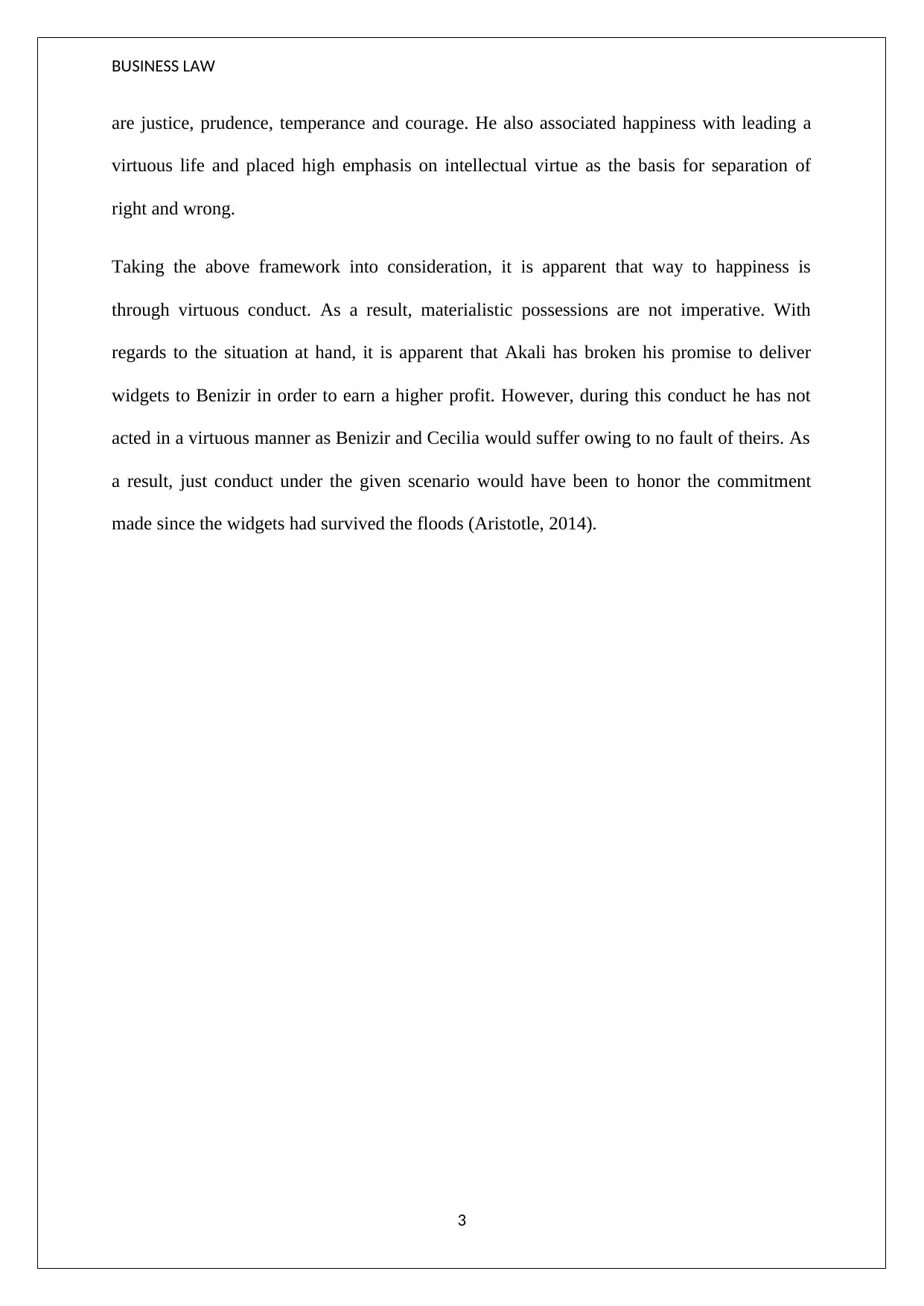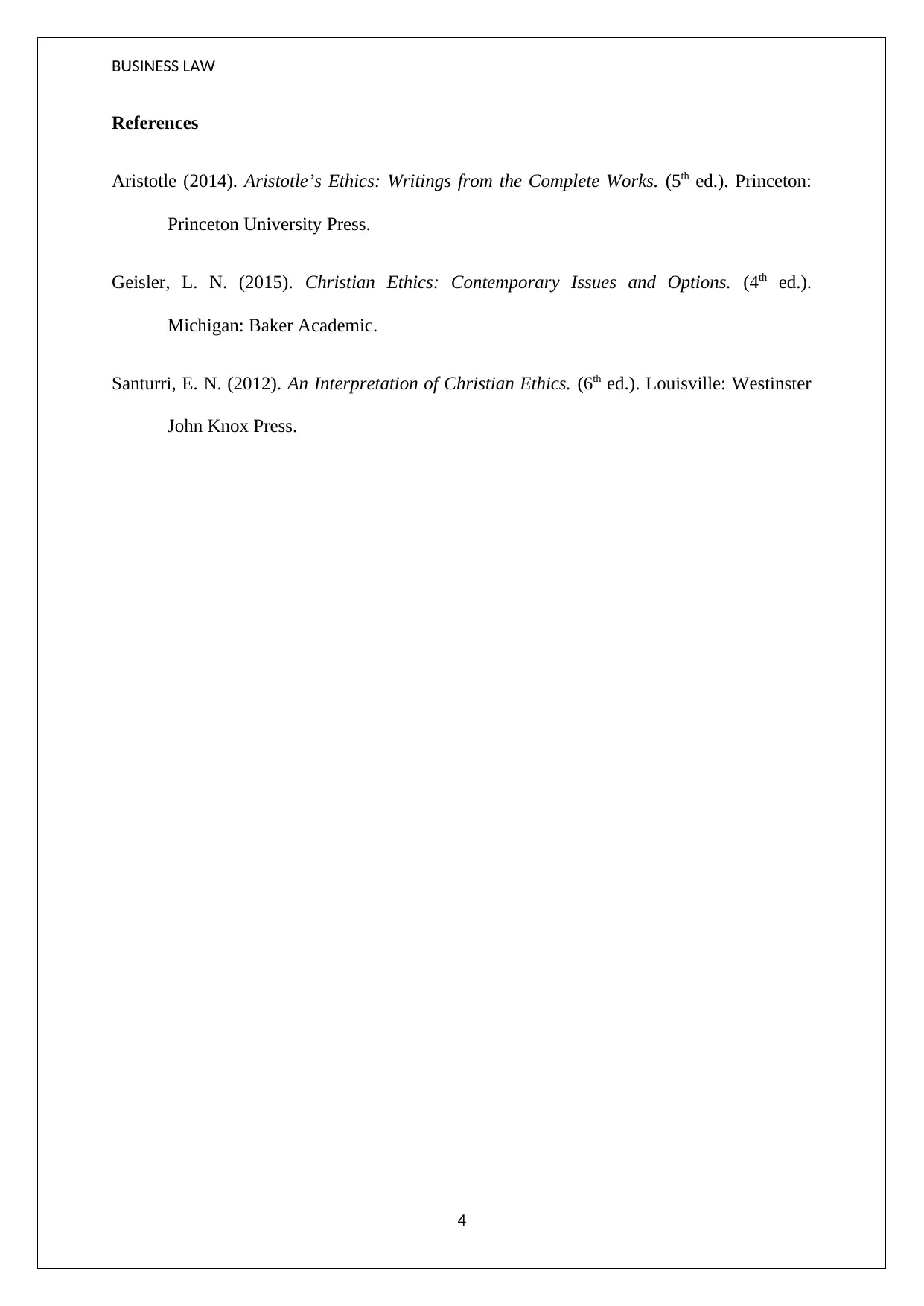Business Law Case Study: Ethical Analysis and Business Decision Making
VerifiedAdded on 2023/04/23
|4
|670
|293
Case Study
AI Summary
This case study analyzes a business law scenario involving a breach of contract. Akali promised to supply widgets to Benizir, who then promised them to Cecilia. However, due to a flood, Akali sold the widgets to another buyer for a higher price, breaking his promise and causing Benizir to also break his promise to Cecilia. The analysis applies Christian ethics, emphasizing virtuous behavior and the importance of keeping promises, contrasting Akali's actions with the expected conduct of a follower of Christ. It also applies Aristotelian virtue ethics, highlighting the importance of virtuous conduct and the pursuit of happiness through ethical actions. The study concludes that Akali's actions were unethical, as he prioritized profit over his commitments, leading to negative consequences for Benizir and Cecilia. The analysis underscores the importance of ethical decision-making in business and the potential consequences of prioritizing financial gain over ethical obligations.
1 out of 4





![[object Object]](/_next/static/media/star-bottom.7253800d.svg)